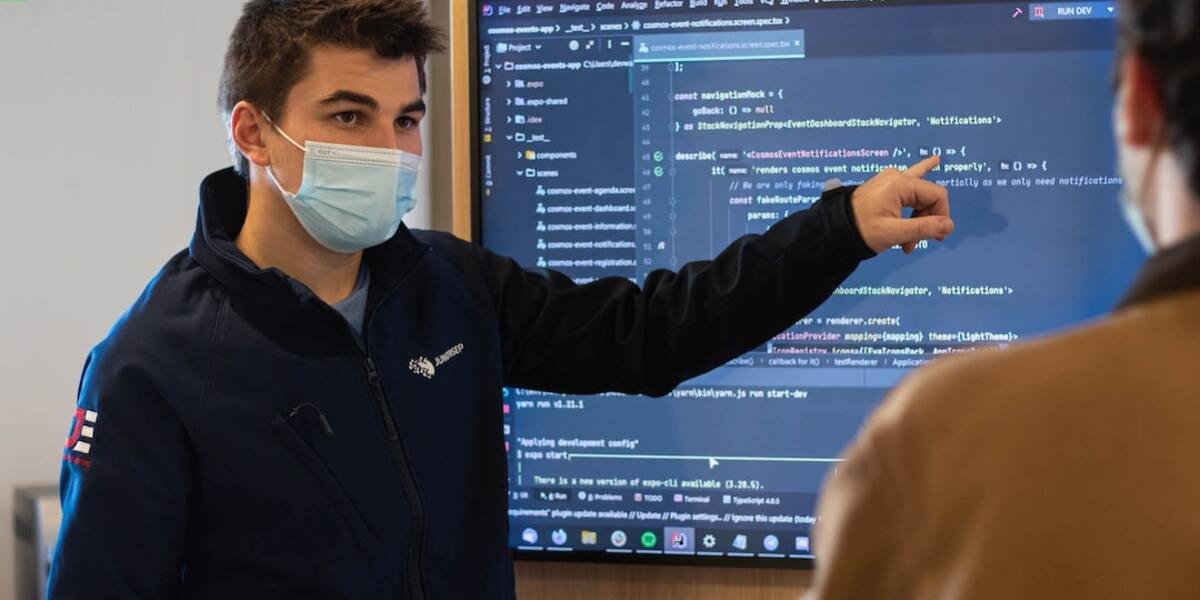Teacher Workshops: A Path to Enhance Classroom Success
Teacher workshops contribute significantly to the approach educators employ in their classrooms. These initiatives present invaluable avenues for professional development, nurturing innovative instructional strategies that mould our children’s learning experiences. Their benefits cut across a wide range of areas, from honing teaching skills and fostering better student engagement to improving academic performance.
However, understanding how these workshops facilitate classroom success requires more than just acknowledging their importance. It involves comprehending the intricate mechanics behind such sessions as well as determining effective ways through which parents and educators can lend support to increase its impact on education dynamics at large.
Did you know?
A riveting little-known fact is that according to the U.S. Department of Education, teachers who engage in extensive professional development can increase student achievement by about 21 percentile points – significantly emphasizing the importance and effectiveness of teacher workshops.
Understanding the Impact of Teacher Workshops on Educational Outcomes
Teacher workshops are becoming increasingly popular as a means to facilitate the integration of technology in education. By engaging teachers with hands-on training sessions, these workshops provide invaluable tools and approaches that can significantly enhance classroom learning experiences. They go beyond mere instruction on how to use certain apps or devices – they’re about exploring innovative teaching strategies underpinned by pedagogical understanding.
The role of teacher workshops extends far past professional development; they have tangible impacts on educational outcomes too. Empirical research carried out over recent years has revealed positive correlations between regular participation in high-quality teacher workshop programs and improvements in student performance metrics, confirming their effectiveness at achieving long-term benefits for both educators and learners alike.
When it comes to supporting parents alongside educators however, teacher workshops take a whole new dimension. In 2023’s interconnected world where building children’s digital literacy is imperative more than ever before, providing parent-specific guidance within these sessions help families navigate the maze of technological tools available while cultivating strong home-school partnerships–a crucial step towards fostering an optimal environment conducive for kids’ academic growth amidst ongoing tech-centered transitions.
The Connection Between Professional Development and Student Achievement
Professional development in the form of teacher workshops holds great significance today. These collaborative platforms are designed to elevate teaching techniques, foster creativity and enhance student achievement.
Technology has revolutionized traditional education methods, with digital classrooms and personalized learning modules playing a vital role among educators worldwide. Here’s how professional development through teacher workshops impacts student accomplishment:
1. First on our list is knowledge enhancement – Technology-integrated teaching requires an adept understanding of various software applications, online tools, virtual reality interfaces and more; bespoke for educational purposes. Teacher workshops provide this necessary training which leads to effective instruction delivery leading ultimately to improved grades.
2.Skill Development – In these modern times teachers must be multi-skilled not just imparting subject knowledge but also troubleshooting tech issues or navigating data security threats while dealing with sensitive information about students’ performance etc., This dual capability ensures seamless classes without interruptions hence maintaining consistent progress in children’s studies.
Evaluating Workshop Effectiveness: Metrics for Success
When it comes to measuring the success and impact of teacher workshops, there are specific metrics one can look at. These indices provide a quantitative analysis on these training sessions’ effect on educational outcomes in 2023.
Firstly, consider teachers’ increased competency in technology integration following attendance at such workshops. This is often reflected by an uptick in their confidence and skills when using teaching aids like smart boards or implementing e-learning platforms into their lesson plans.
Secondly, pupil performance indicators offer valuable data points too. If students exhibit improvements not only acadically but also show better engagement with lessons post-workshop – that’s a clear sign of success.
Thirdly, parents’ feedback shouldn’t be overlooked either. Today’s digital age places significant importance on parent-teacher communications via various online portals or apps facilitated through technology integration initiatives promoted during teacher seminars.
Finally yet importantly let’s not forget about peer reviews from other staff members which could highlight transformative approaches adopted after attending teacher tutorials related to technological innovation within classrooms.
Strategies for Maximizing Benefits from Teacher Training Sessions
Teacher workshops are an integral part of professional development and play a key role in integrating technology into education. With the right strategies, these sessions can have far-reaching effects on classrooms across all educational levels – from preschool to high school. In 2023, we’re seeing trends like increased virtual learning spaces and augmented reality being used in teaching methods; hence understanding how to utilize them is crucial for educators.
One effective strategy that has been proven successful time and again is active engagement within teacher trainings. This means not just sitting through presentations or lectures but actively participating during hands-on demonstrations of new edtech tools, group brainstorming activities about real-life classroom scenarios, or even mock lessons where teachers take turns playing student roles.
Lastly, it’s important for organizers of our teacher training sessions to provide continual support post-training as well as foster open communication networks among attendees. For example, creating community forums online where they can discuss their successes or challenges with applying what they’ve learned helps maintain momentum long after the workshop ends. It also gives room for collaborative problem-solving which enhances everyone’s growth professionally.
It’s clear then: To truly maximize benefits from such workshops calls for more than passive knowledge intake – it requires active application coupled with sustained support systems throughout one’s teaching journey.
Tailoring Workshops to Curriculum Needs and Teaching Styles
In the rapidly changing world of 2023, teacher workshops are more vital than ever in advancing pedagogical skills and integrating technology into education. With a targeted approach to these valuable sessions, teacher training can be curated towards both curriculum needs as well as individual teaching styles.
Firstly, tailoring workshops according to curriculum needs has a tremendous impact on outcomes. It is essential that content material at any professional development session closely aligns with what teachers need to deliver in their classrooms. This increases relevance and allows for direct application of learned competencies.
Secondly, it’s important to consider variances in educators’ teaching styles during these gatherings. A one-size-fits-all mentality may not cater accurately toward every participant’s unique aptitudes or areas needing improvement. Some prefer hands-on demonstrations while others benefit from group discussions or lectures; acknowledging this variety enriches overall workshop effectiveness.
Emphasizing technologically-integrated instruction methods, schools around the world champion these practical strategies:
1) Utilize Learning Management Systems: Emphasizing platforms such as Google Classroom can help streamline lessons with multimedia inputs effortlessly woven into various subjects.
2) Integrate Automation Tools: Showcase tools like Quizlet or Kahoot! These provide interactive formative assessments which give live feedback thus enabling immediate instructional adjustments.
3) Promote Coding Skills: Encourage basics of coding across all disciplines by using user-friendly resources like Scratch programming language – making tech learning fun!
Fostering Collaborative Learning Among Educators Through Interactive Workshops
Engaging in teacher workshops not only enriches the educational methodologies of an individual but also fosters a collaborative environment amongst educators themselves, and this concept is paramount to discuss when discussing . The essence here lies in how effectively these interactive platforms are used as stages for transforming into thriving spaces of knowledge exchange.
In today’s digital age, it has become increasingly important for teachers to continuously upgrade their skills, especially considering tech integration. Technology plays a pivotal role now more than ever before by making learning experiences more engaging and efficient – both inside and out the classrooms’ confines.
Interactive teacher workshops therefore serve as ideal domains where cutting-edge technology can be introduced efficiently among educators. These sessions offer hands-on experience with various tools allowing them to explore innovative teaching strategies; hence breaking away from traditional norms that may no longer offer optimal results.
Moreover, collaboration enabled through these training programs encourages dialogue between participants fostering shared learning enabling them to gain perspective on diverse approaches towards education. This collective wisdom paves way for better classroom management techniques & overall improved student engagement relevant not just within their respective classrooms but extending beyond school boundaries into wider realms wherein parents too play critical roles.
Enhancing Parent Involvement in Teacher Professional Growth
In the expanding landscape of modern education, the significance of teacher workshops for professional development is indisputable. However, it’s equally important to involve parents in these programs. Parental involvement not only strengthens home-school bonds but also provides additional insights into a child’s learning curve which can be extremely beneficial during these workshop sessions.
The intersection between technology integration and parent involvement introduces an innovative dimension to teaching methodologies. By utilizing emerging digital tools and platforms during teacher workshops, educators are equipped with new age pedagogies aiming towards improved student outcomes. Parents who partake in this transformative journey have a better understanding of contemporary educational paradigms brought about by technological advancements.
In 2023, as we navigate through the post-pandemic era flush with blended learning infrastructures; promoting parental participation in teachers’ growth process becomes even more vital to ensuring overall success. The synergy between motivated teachers upgraded with state-of-art training modules combined with engaged parents abreast of their children’s evolving academic needs represents an optimal model for childhood education today.
Empowering Parents to Support Educator Skills Enhancement
In a digital age, where technology’s role in education is increasingly significant, parent involvement plays an essential part. It helps educators grow professionally through teacher workshops that focus on integrating tech tools into the teaching curriculum.
Parents can provide tangible support to educator skills enhancement by contributing their thoughts and ideas during these workshops. When parents share unique insights based on their child’s learning habits at home or offer suggestions about useful applications they’ve discovered, it can lead to innovative strategies for technological integration.
However, effectively empowering parents requires laying down an open channel of communication with them from day one. Regular updates about upcoming teacher workshop schedules and discussion topics would foster greater enthusiasm among parents. Encouraging them to join online forums related to these sessions could further enhance this shared learning experience.
Simultaneously cultivating an environment of mutual respect and understanding goes a long way toward successful collaboration between educators and families in 2023—particularly when addressing new changes such as those brought by technology adoption in classrooms.
Most importantly, making sure all parties involved are equipped with adequate knowledge concerning recent developments becomes vital here; specifically regarding educational technologies’ benefits towards improving pedagogical practice. If necessary resources – like webinars or e-books discussing various aspects of ed-tech- are made accessible freely for everyone interested —parents being no exception—it will result not just fostering better-defined roles but also more informed participants driving forward our children’s future success stories altogether!
Creating a Dialogue: Integrating Parent Feedback into Teacher Development Programs
In today’s digitized and technologically advanced educational landscape, the integration of parent feedback into teacher development programs is becoming increasingly significant. With a growing emphasis on teacher workshops as vital avenues for professional growth, involving parents can be an incredibly effective strategy.
The first step towards this goal involves creating open channels for dialogue between educators and parents. Establishing regular meetings or online forums can offer a platform where parental insights about their child’s learning patterns are shared with teachers directly involved in structuring curriculums. This link not only facilitates transparency but also provides inputs to tailor teaching approaches better suited to individual students’ needs.
Secondly, incorporating elements from these dialogues into designing contemporary ‘teacher workshops’ helps keep lesson plans dynamic and relevant. As each student’s primary support system outside school premises, parents often have unique perceptions regarding which methods work best when it comes to engaging their children educationally–insights that could inspire novel approaches within training sessions conducted for teachers.
Furthermore, integrating technology tools like collaboration software or internet-assisted project management systems enhances efficiency considerably by streamlining communication lines amongst all parties involved – the key being utilizing solutions easily accessible both at home by the parents as well as within conventional school networks accessed by teachers regularly during term time periods.
Conclusion
In wrapping up, teacher workshops are undeniably the secret sauce to sprinkle on the recipe for a successful classroom. They equip educators with innovative teaching tactics and strategies that not only enliven their classrooms, but also aid in crafting well-rounded individuals out of our youngsters. Without any fluff or mere rhetoric, they are an investment worth every penny and minute as they hold enormous potential to influence educational outcomes.
But remember: The path of education is ever-evolving just like our little ones! We urge you all – parents and teachers alike – to continue exploring this vast expanse by embarking on a learning journey through other resources available across our website. Because at its heart, educating children isn’t merely about imparting knowledge; it’s sculpting futures too!
So why wait? Join us now for more insightful information concerning childhood education and unparalleled support specifically designed for educator’s unique needs.







